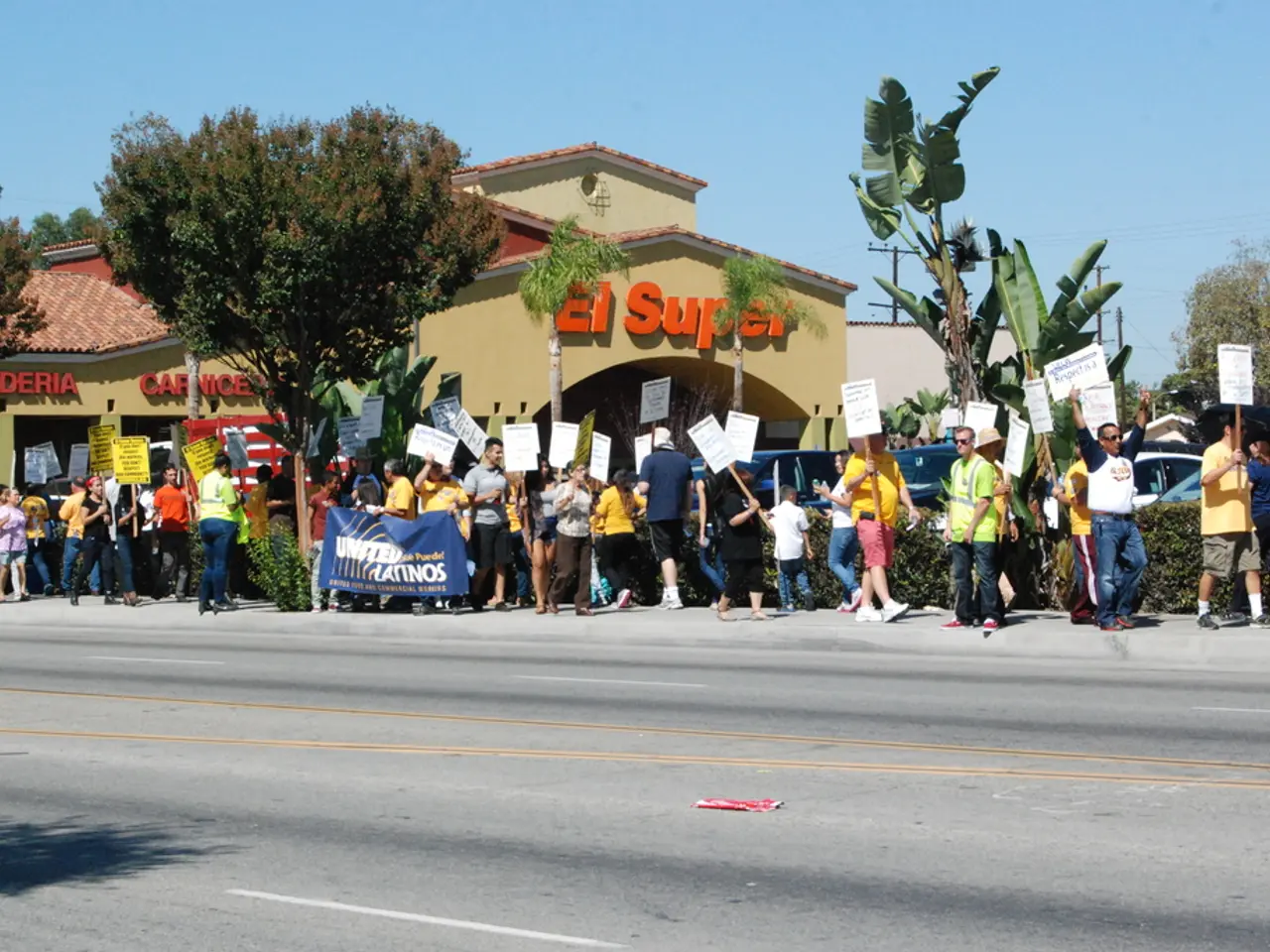Environmentalists' Stance on the Rejected 'Antiapagones' Real Decree Law
In a recent development, the controversial Anti-Blackout Royal Decree-Law (RDL 7/2025) has failed to pass, sparking debates and concerns about the future of decarbonization and energy transition in the country.
The decree, which aimed to address the issue of blackouts, had proposed several measures. One such measure was the expansion of the radius within which self-consumption installations can share electricity, increasing it from two to five kilometers. This move was intended to promote energy sharing and reduce reliance on traditional power sources.
Another significant aspect of the decree was the inclusion of demand management, allowing consumption to be modulated according to energy availability. This feature was designed to optimise energy usage and prevent waste during periods of high demand.
However, the RDL faced significant opposition due to concerns over its impact on labor rights and legal interpretations. As a result, it was not approved, leading to a setback in decarbonization efforts and potentially a higher cost for citizens.
Marina Gros, an environmental advocate, laments this turn of events. She believes that citizens will continue to depend on fossil fuels to regulate the electrical system, which are more expensive, volatile, and dependent on geopolitical tensions.
Javier Andaluz, on the other hand, believes that the necessary promotion of energy storage can be combined with greater environmental guarantees and public participation. He supports the decree's clarification of norms and promotion of energy storage, but emphasises the need for robust public planning, greater citizen participation, and a definitive abandonment of fossil fuels to achieve a 100% renewable electricity system by 2030.
The RDL also contained recommendations to minimise future blackouts and proposals for the energy transition historically demanded by environmental groups and citizens. These included promoting aerothermal, geothermal, and heat pumps with tax breaks similar to other forms of renewable energy.
However, the RDL had its controversial aspects, such as the simplification of environmental procedures and the support of electro-intensive industries with subsidies (250 million euros) that do not require energy efficiency or the use of renewables.
Environmental organizations consider the measures in the decree necessary for improving the resilience of the electrical system. They argue that the urgency of updating the electrical system can and should be combined with greater, not lesser, environmental guarantees and public participation.
In the absence of the RDL, the focus now shifts to finding alternative solutions that can address the issue of blackouts while promoting decarbonization and energy transition. The debate continues, with voices calling for a clearer approach to distribution models and energy sovereignty, and for robust public planning, greater citizen participation, and a definitive abandonment of fossil fuels to achieve a sustainable and renewable future.
Read also:
- Potential Consequences of Dismantling FEMA Vary Across States
- Railway line in Bavaria threatened by unstable slope - extensive construction site at risk
- Wind Farm Controversy on the Boundary of Laois and Kilkenny
- Puerto Rico's Climate Lawfare Campaign experiences another setback with the dismissal of its deals.








